1. Eating Everything on Your Plate

Grandparents didn’t believe in wasting food, and it wasn’t just about good manners. Many of them grew up during the Great Depression or in households where food was scarce, so leaving a single bite behind was unthinkable. They had a “clean plate club” mentality, not because they wanted to be strict, but because they knew firsthand what it was like to go hungry. If you so much as suggested you were full, you’d get a lecture about starving children somewhere in the world says GoodToKnow.
It wasn’t just about finishing—it was about stretching every meal to its fullest potential. Leftovers were repurposed, and scraps went into soup or stew the next day. Expiration dates? Those were more like guidelines. You ate what was available, and you were grateful for it. Even today, many of us still feel guilty throwing food away, thanks to those deeply ingrained lessons adds Mayo Clinics Press.
2. Wearing Layers No Matter the Weather
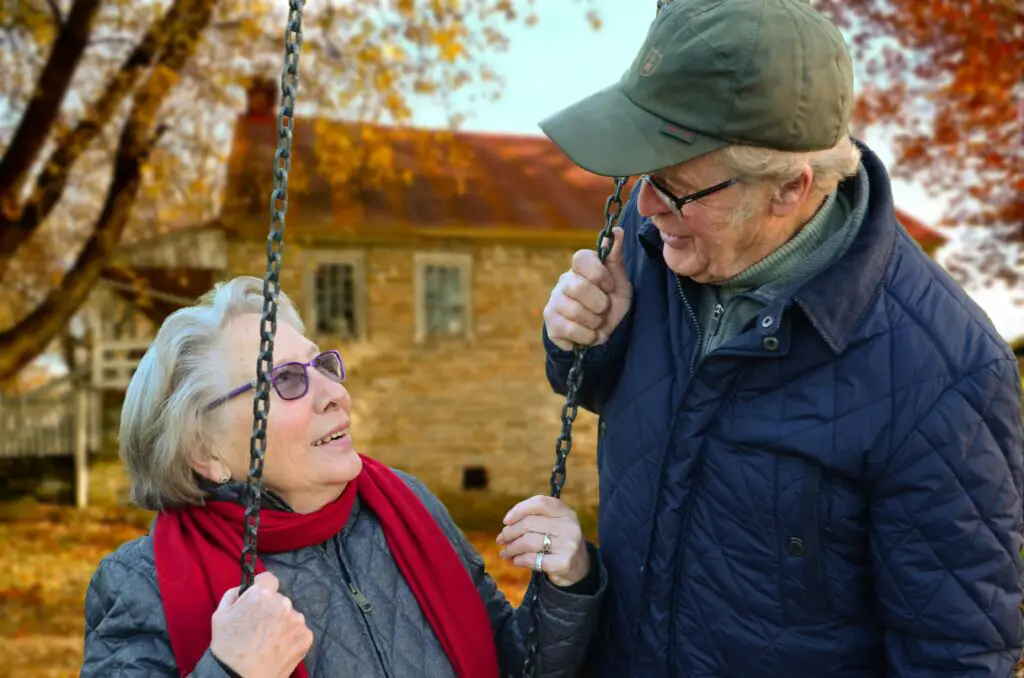
If you ever tried to leave the house in just a T-shirt when it was below 60 degrees, you probably got stopped at the door. Grandparents had a firm belief that being cold was a one-way ticket to getting sick. They didn’t care if you swore you weren’t chilly—if they thought it was cold, you needed a coat. And if you dared step out without one, you’d hear, “You’ll catch your death out there!”
This wasn’t just about comfort; it was survival. Many of them had lived in drafty houses with unreliable heating, so they learned to bundle up early on. Wool socks, scarves, and thermal underwear were non-negotiable in the winter. Even indoors, you were expected to layer up before anyone touched the thermostat. To this day, some of us still carry an extra sweater just in case says Scary Mommy.
3. Locking Every Door and Window

Grandparents didn’t take any chances when it came to home security. Every night, there was a ritual of double-checking the locks on every door and window—even in neighborhoods where crime was rare. If you forgot, you’d get an earful about how “times are different now,” even though their own generation dealt with just as much trouble. The thought of leaving the house unlocked, even for a quick errand, was simply unacceptable shares Parents.
This caution came from a time when people relied more on themselves for safety. Police response times weren’t always quick, and home break-ins were a real concern. They also lived through times of war and economic hardship, when people were more desperate. Their paranoia wasn’t just about safety—it was about self-preservation. That’s why some still keep a bat by the door, just in case.
4. Saving Every Plastic Bag and Container
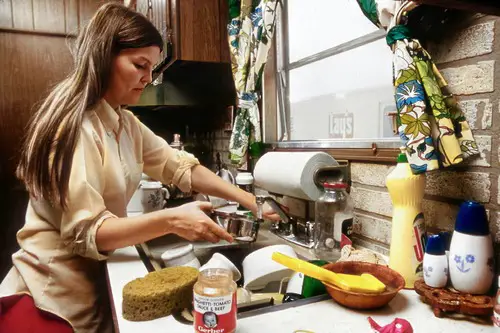
Throwing away a perfectly good container was practically a crime in a grandparent’s house. Every margarine tub, glass jar, and plastic bag had a second life. It wasn’t just about frugality—it was about making sure nothing went to waste. They had a whole stash of plastic bags under the sink and a drawer full of reused foil, ready to be used again.
This habit came from a time when household items weren’t so easily replaced. Buying storage containers wasn’t always in the budget, and you never knew when you’d need an extra bag or two. Those habits stuck, even as things became more disposable. While some of us roll our eyes at the sheer number of plastic bags stashed away, deep down, we know they had a point.
5. Hanging Laundry to Dry
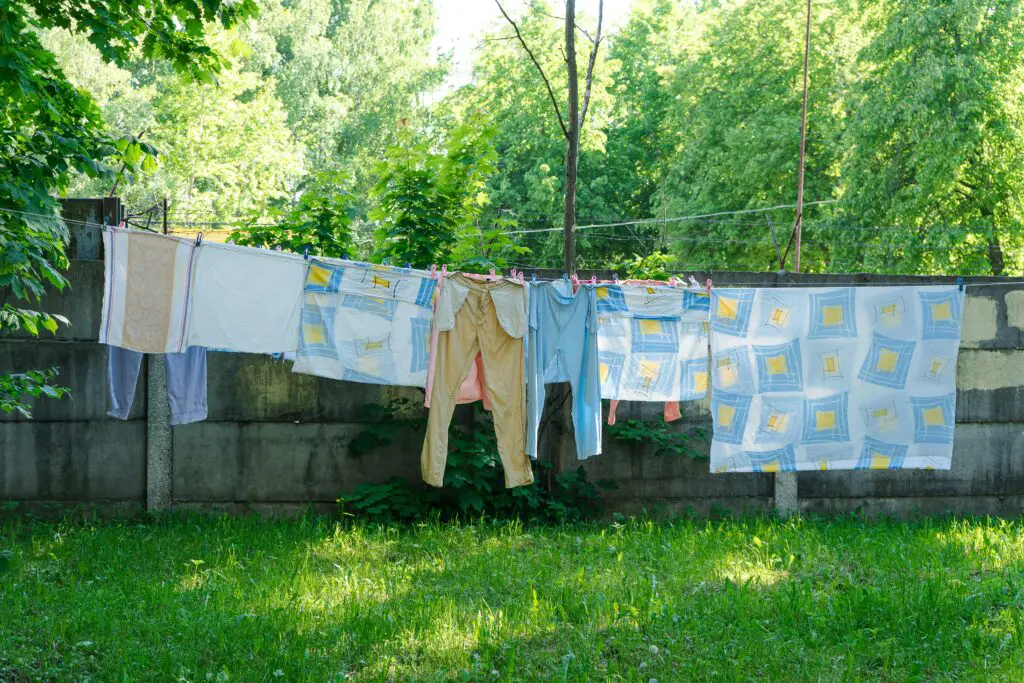
Before dryers were common, hanging clothes outside was just how things were done. Even after dryers became standard, many grandparents still preferred the clothesline. It saved money on electricity, and nothing smelled fresher than sheets dried in the sun. They didn’t see the need to rush the process when nature could do the job for free.
But it wasn’t just about the fresh air—clothes lasted longer this way. Dryers could wear out fabric faster, and replacing clothes wasn’t always an option. Every piece of clothing was cared for as if it had to last a lifetime. That’s why some grandparents still insist their towels are softer when they dry outside, even if they end up stiff as a board.
6. Keeping a Cash Stash

Many grandparents didn’t trust banks completely, and they always had a little emergency fund hidden somewhere in the house. Whether it was in a coffee can, under the mattress, or inside a hollowed-out book, they wanted quick access to money if needed. Banks could fail, accounts could be frozen, and credit cards weren’t always reliable. Having cash on hand meant they had options.
This mindset came from living through bank crashes and recessions where money wasn’t always guaranteed. They believed in being prepared for the unexpected, and digital banking didn’t change that. Even today, some still insist on carrying cash, just in case. While we may roll our eyes at their hidden stashes, we’d probably be grateful for them in an emergency.
7. Eating Leftovers Until They Were Gone

Throwing away perfectly good food was unthinkable. If there was something left from last night’s dinner, it became today’s lunch, no exceptions. You could complain all you wanted, but wasting food was not an option. They grew up stretching every meal to make sure nothing went to waste.
This wasn’t just about being frugal—it was about survival. Many had lived through food shortages where every meal counted. If you didn’t eat what was there, you simply went hungry. That’s why they had no problem eating something that had been reheated three times.
8. Keeping the House at One Temperature Year-Round
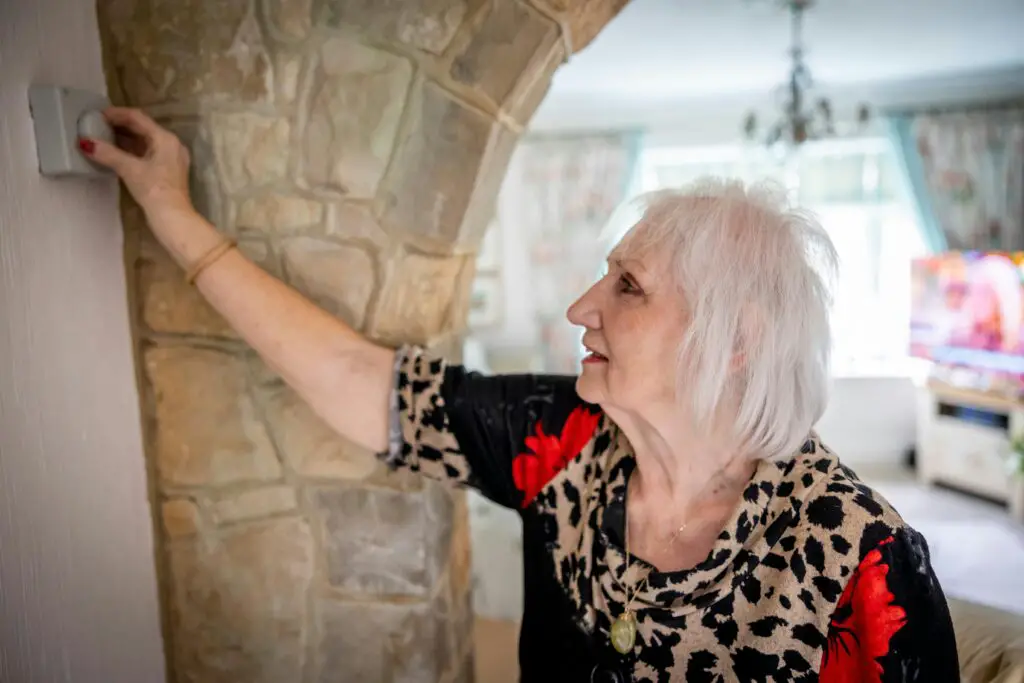
Grandparents had a strict policy when it came to the thermostat. In winter, you were expected to bundle up instead of cranking the heat. In summer, fans and open windows were the preferred method of cooling. The idea of constantly adjusting the temperature was seen as wasteful.
This came from a time when heating and cooling were expensive luxuries. Many houses relied on fireplaces, coal, or inefficient heaters, so every degree mattered. Even today, some still keep their homes at an almost uncomfortably consistent temperature. And if you complain, they’ll just tell you to grab a blanket.
9. Using Everything to the Last Drop

Grandparents weren’t about to let anything go to waste, especially not household items. Toothpaste tubes were squeezed until they were flat as paper. Soap slivers got mashed together to make a new bar. Shampoo bottles were filled with water and shaken for one last use.
This was a habit born from necessity. When money was tight, every little bit mattered. It’s why many still instinctively try to get the last drop out of every bottle. Even if they can afford to buy more, those old habits die hard.
10. Making Repairs Instead of Replacing
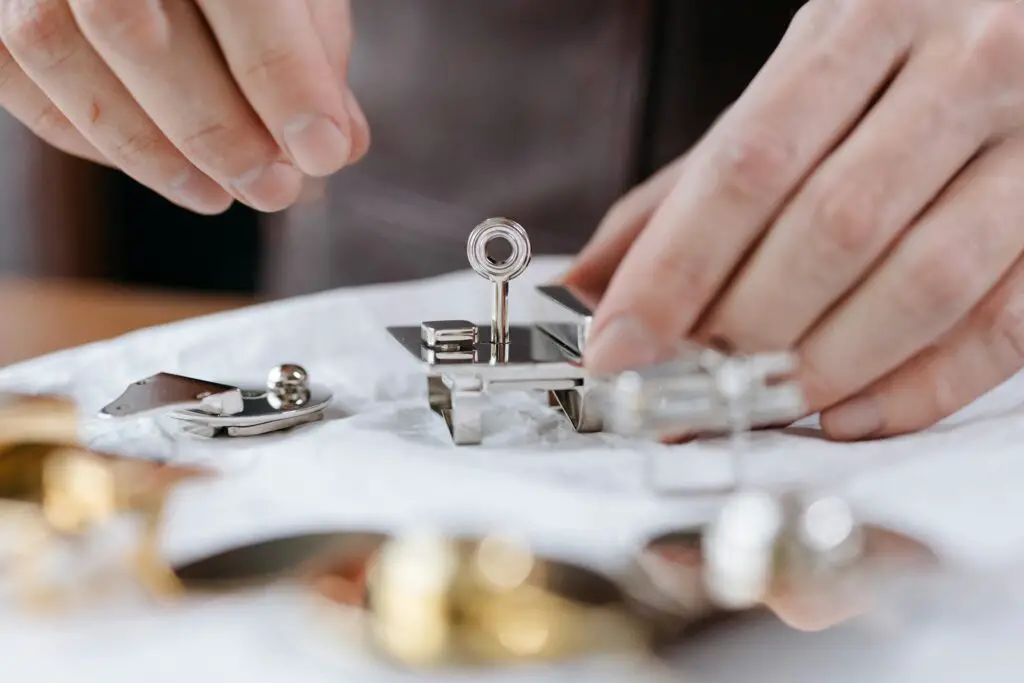
If something broke, the first instinct was to fix it. Whether it was sewing up a tear in clothes or patching up furniture, they weren’t quick to toss things out. They had a drawer full of spare buttons, extra screws, and fabric scraps just in case.
This mindset came from a time when replacing items wasn’t always possible. Learning how to fix things was just part of life. Even now, they’ll insist a little glue or tape can fix almost anything. And honestly, they’re often right.
11. Stocking Up on Essentials
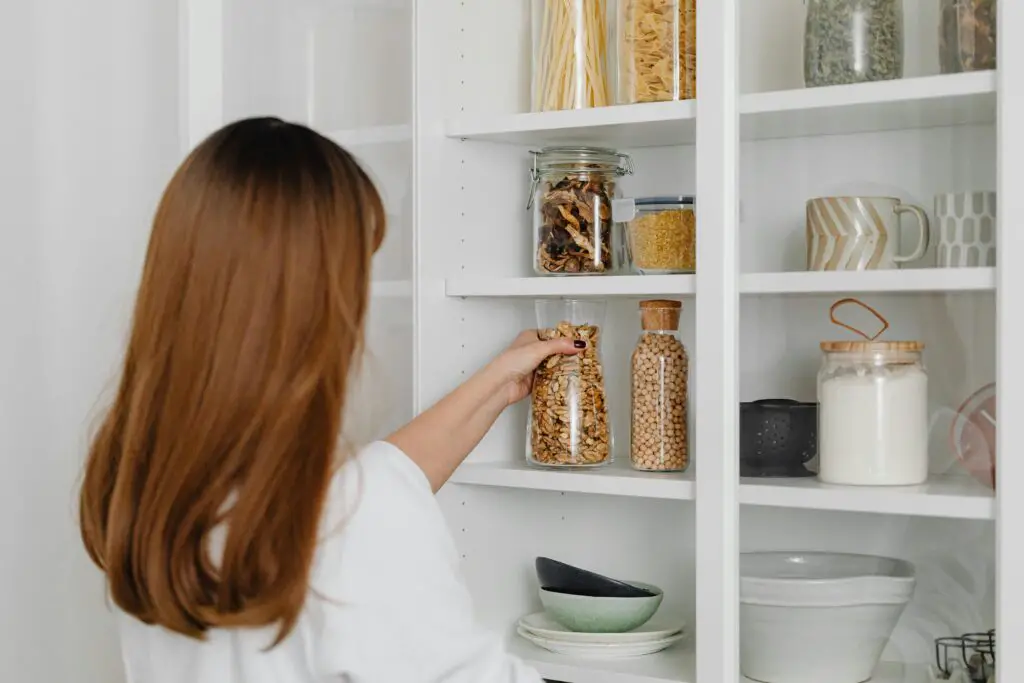
Grandparents always had a stocked pantry, and it wasn’t just about convenience. They had lived through times when food and household supplies weren’t always readily available. Whether it was wartime rationing, economic downturns, or unpredictable supply chains, they learned early on that it was better to have too much than too little. If you ever peeked inside their cabinets, you’d likely find stacks of canned goods, extra rolls of toilet paper, and enough cleaning supplies to last a year.
It wasn’t just about food either—medicine, batteries, and even basic tools were always on hand. They didn’t believe in running out of something important, especially when it could mean an unexpected trip to the store in bad weather or during an emergency. Sales and bulk deals were never passed up, and coupons were used religiously. While some may have teased them about their well-stocked shelves, when a storm hit or a shortage happened, they were the ones everyone turned to.
12. Always Carrying a Handkerchief
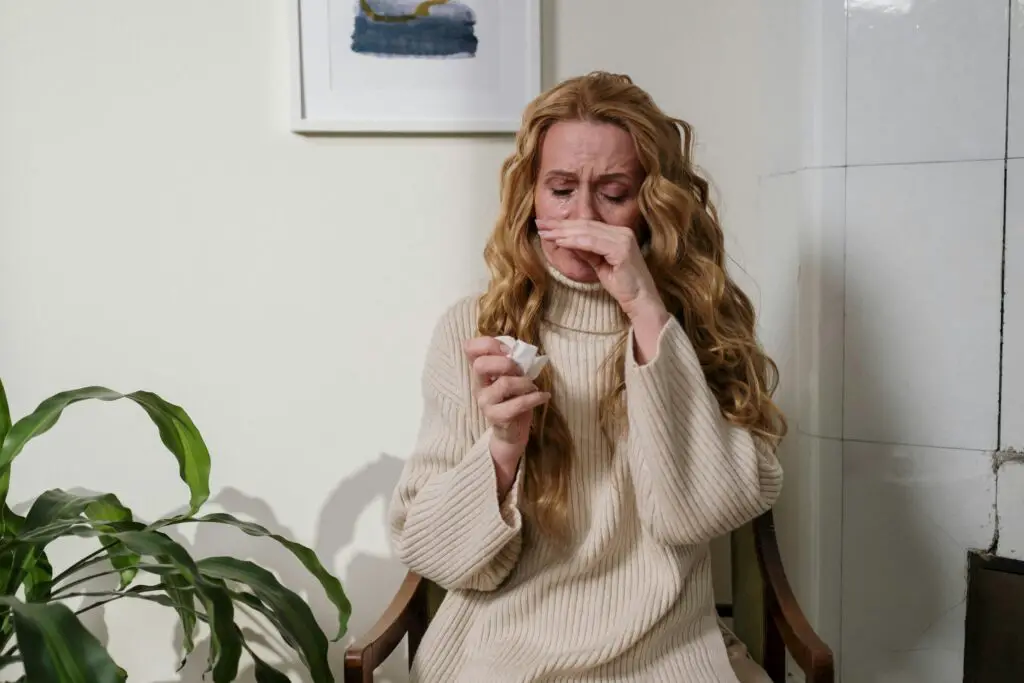
Grandparents never left the house without a handkerchief, and they weren’t just for show. In their minds, disposable tissues were unnecessary when you could just wash and reuse a good handkerchief. They had one neatly folded in a pocket or purse, ready for any situation. Whether you had a runny nose, a spill, or even a sudden need for a bandage, that little piece of fabric could handle it all. If you cried, they’d press one into your hands with a gentle pat on the shoulder.
This wasn’t just about practicality—it was about always being prepared. Handkerchiefs were multi-purpose tools, not just for personal use but also for helping others. They could be used to wipe sweat, clean glasses, or even tie up a small wound in a pinch. Many of us still remember watching them neatly fold one up after washing, smoothing it out with care before tucking it away for later. It was a small habit, but it symbolized their resourcefulness and readiness for anything.
13. Keeping Flashlights and Candles Ready
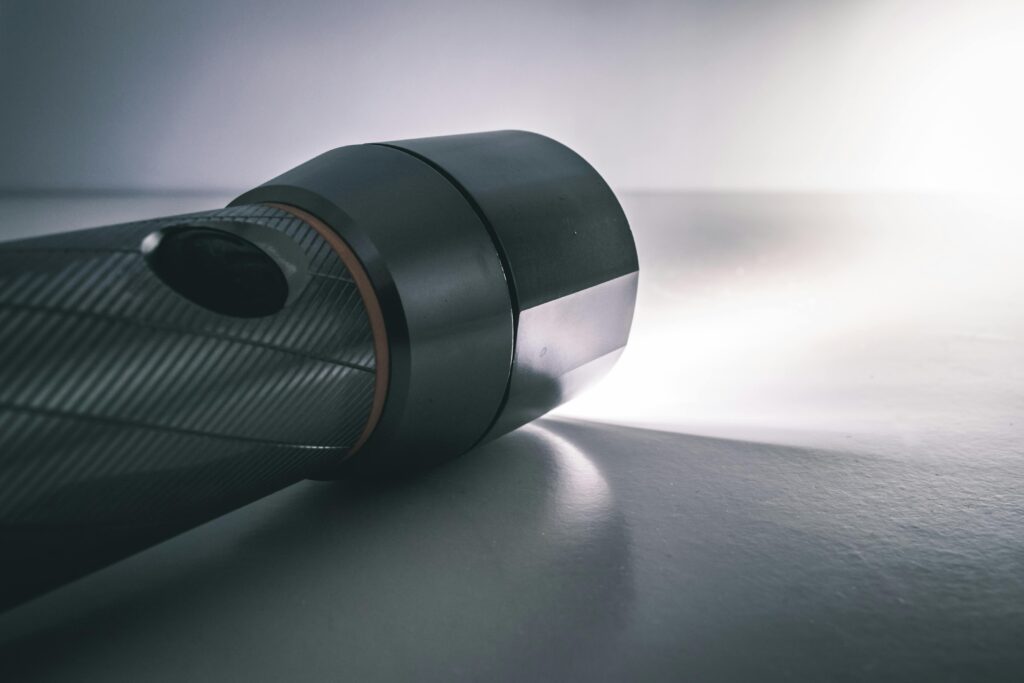
For grandparents, a power outage wasn’t just an inconvenience—it was something you prepared for like it was an inevitable event. They always had flashlights within reach, often in the same spot for decades so they could find them in the dark. Extra batteries were stored away, just in case, and candles were lined up neatly in a drawer, ready to be lit at a moment’s notice. If the lights so much as flickered, they’d be on high alert, already reaching for their emergency stash.
This habit came from a time when power outages were more frequent, and sometimes lasted for days. They had lived through storms, rolling blackouts, and unreliable electricity grids, so being caught unprepared wasn’t an option. Even now, many still keep lanterns, oil lamps, or wind-up radios on hand, just like they always have. And if you ever question why they have so many candles, they’ll just shake their head and say, “You’ll thank me when the lights go out.”
